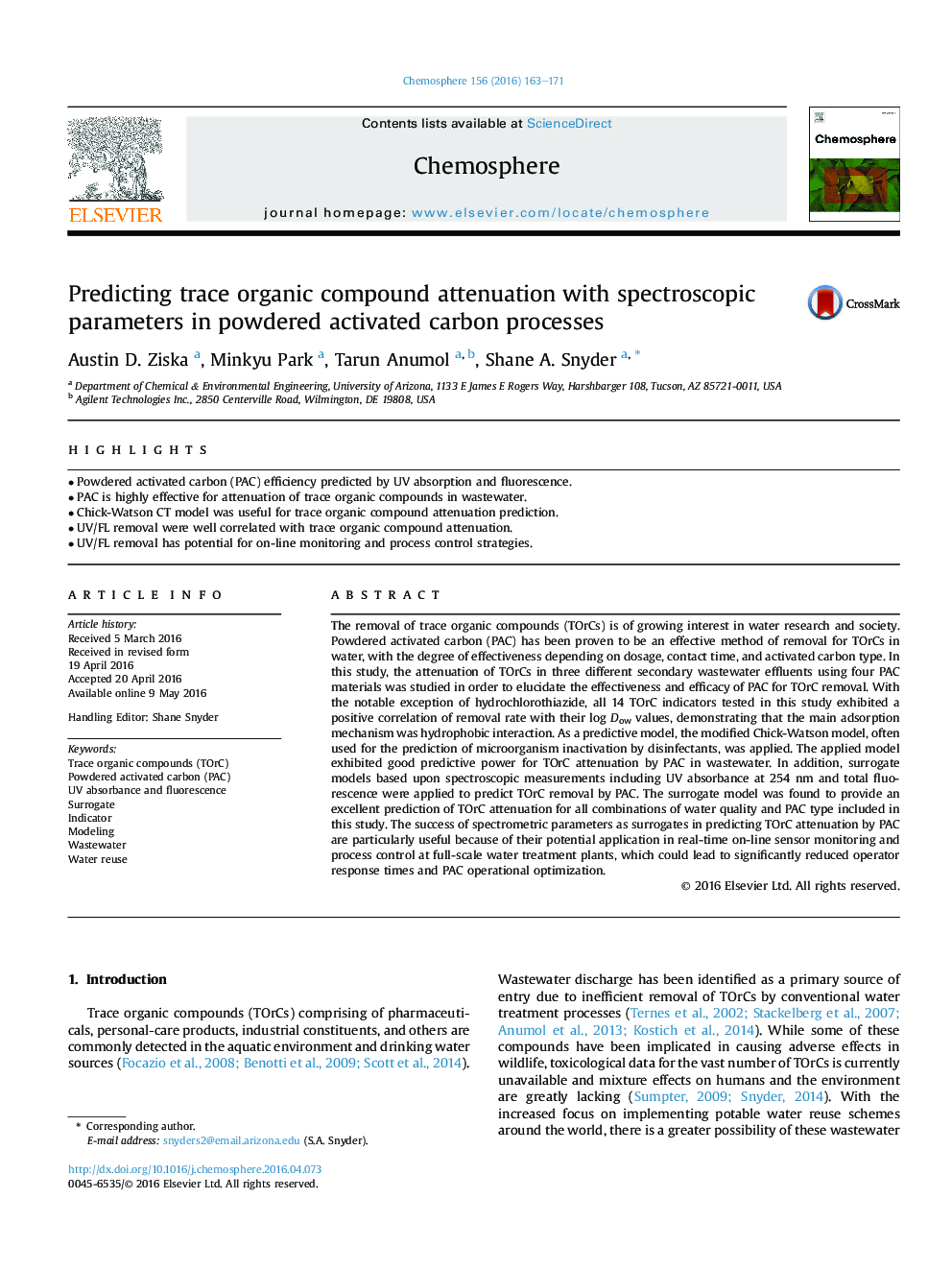| کد مقاله | کد نشریه | سال انتشار | مقاله انگلیسی | نسخه تمام متن |
|---|---|---|---|---|
| 4407746 | 1618815 | 2016 | 9 صفحه PDF | دانلود رایگان |
• Powdered activated carbon (PAC) efficiency predicted by UV absorption and fluorescence.
• PAC is highly effective for attenuation of trace organic compounds in wastewater.
• Chick-Watson CT model was useful for trace organic compound attenuation prediction.
• UV/FL removal were well correlated with trace organic compound attenuation.
• UV/FL removal has potential for on-line monitoring and process control strategies.
The removal of trace organic compounds (TOrCs) is of growing interest in water research and society. Powdered activated carbon (PAC) has been proven to be an effective method of removal for TOrCs in water, with the degree of effectiveness depending on dosage, contact time, and activated carbon type. In this study, the attenuation of TOrCs in three different secondary wastewater effluents using four PAC materials was studied in order to elucidate the effectiveness and efficacy of PAC for TOrC removal. With the notable exception of hydrochlorothiazide, all 14 TOrC indicators tested in this study exhibited a positive correlation of removal rate with their log Dow values, demonstrating that the main adsorption mechanism was hydrophobic interaction. As a predictive model, the modified Chick-Watson model, often used for the prediction of microorganism inactivation by disinfectants, was applied. The applied model exhibited good predictive power for TOrC attenuation by PAC in wastewater. In addition, surrogate models based upon spectroscopic measurements including UV absorbance at 254 nm and total fluorescence were applied to predict TOrC removal by PAC. The surrogate model was found to provide an excellent prediction of TOrC attenuation for all combinations of water quality and PAC type included in this study. The success of spectrometric parameters as surrogates in predicting TOrC attenuation by PAC are particularly useful because of their potential application in real-time on-line sensor monitoring and process control at full-scale water treatment plants, which could lead to significantly reduced operator response times and PAC operational optimization.
Journal: Chemosphere - Volume 156, August 2016, Pages 163–171
